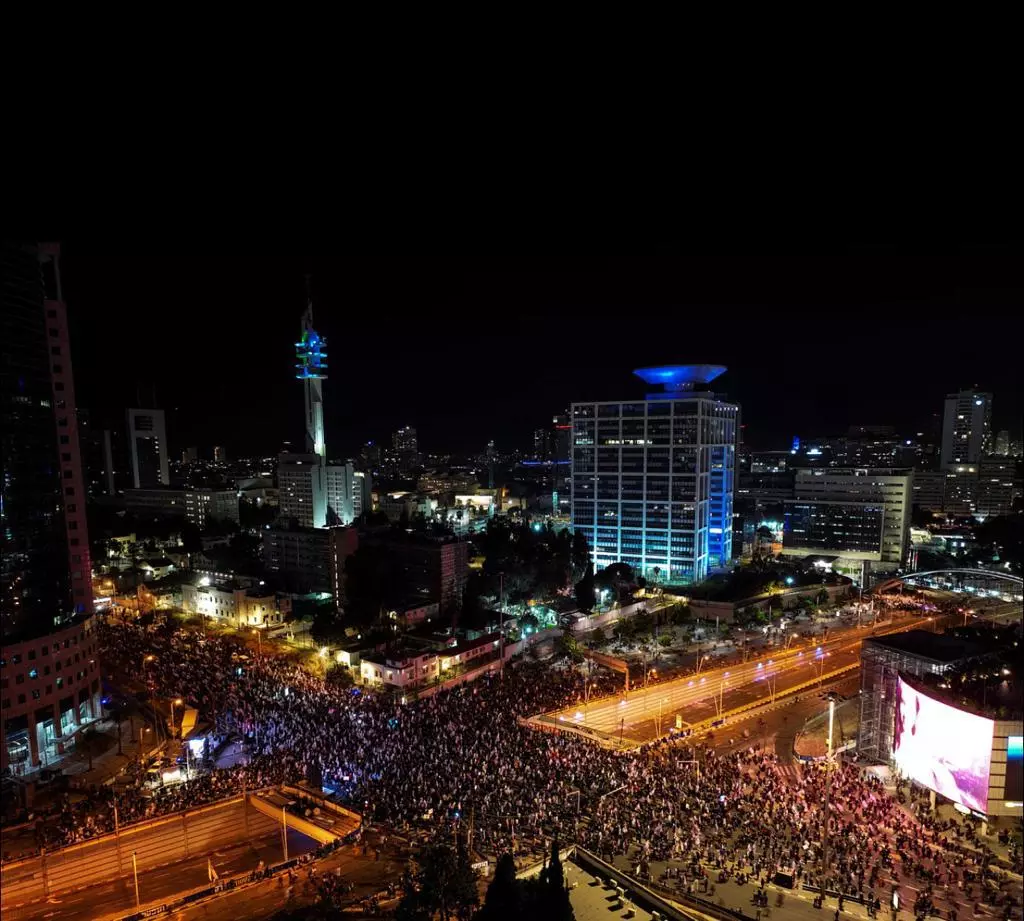For the better part of 2023, the news has focused on plans by Israeli Prime Minister Benjamin Netanyahu’s right-wing government to overhaul Israel’s judicial system.
The plan would weaken the Supreme Court, affecting everything from who selects judges, to the court’s ability to overturn cabinet members’ actions, to even the court’s ability to overturn laws that violate Israel’s version of the Bill of Rights.
On July 24, 2023, one of those pieces became law.
The new law prohibits Israeli courts from using what’s called the “reasonableness doctrine” to review decisions made by the Israeli cabinet, government ministers, and other unspecified “elected officials, as determined by law.” It does not apply to legislation passed.
This “reasonableness” standard was adopted over decades of Israeli jurisprudence using pieces of Jewish law, British law, and the American legal system.
It’s been used to overturn an Israeli cabinet’s refusal to fortify classrooms for kids in an area of Israel that had been hit by Islamic Jihad bombs. It was used to stop a convicted criminal from holding a ministerial position in government.
It was used to strike down the government’s decision to retroactively legalize settlements illegally built on Arab land in the West Bank. And it was used to prevent the government from evicting Arab families who had lived in a Jerusalem neighborhood for decades over failure to pay rent.
While the removal of this standard will likely be struck down, ironically, by the Supreme Court, and set up the country for a major political battle, what it means if it ever goes into effect is that Netanyahu and his far-right extremist cabinet can act without much review.
Well, mostly.
Media outlets NBC, ABC, CNN, and others have largely gotten this piece of the puzzle wrong.
While Israel doesn’t have a constitution, despite its Declaration of Independence promising one by October 1, 1948, Israel does have a pseudo-constitution — something called Basic Laws, which include a Bill of Rights-like list of rights.
Rights related to unlawful imprisonment, property and liberty, body, intimacy, and right of movement. It’s actually broader than our own Constitution in some respects.

For now, the Israeli Supreme Court still has the right to block any action that violates one of these Basic Laws. And it has the ability to still strike down legislation.
So the first step with this new law was more about preserving Netanyahu and his criminal and extremist cronies’ ability to carry out government action many people find objectionable. Still with some brakes, though.
The problem is Netanyahu wants to do much much worse.
In his greater plan, his government would not just be able to act unreasonably. It would appoint judges. Then the Supreme Court, appointed by his judges, would be able to render something “unconstitutional,” i.e. against the Basic Laws, only if there was a unanimous ruling.
In other words, if the other parts of his plan fall into place, Netanyahu theoretically could pass laws that keep him and his far-right government in power for eternity without anyone stopping him.
Supporters of the first step passed on July 24, ending the Supreme Court’s ability to strike down a government minister’s action it deems unreasonable, have a point. However nepotistic and bad it may be, Israel’s current government was elected by the people.
Should any Supreme Court be able to stop an elected government from doing something just because the members think it’s unreasonable? I imagine most Democrats in the U.S. found 95% of what Trump did unreasonably, and vice versa for Biden and Republicans, if you listen to Fox News.
So why all the protests over this small piece of the plan, and what can we learn from it here in America when it comes to racism?
For months leading up to and continuing after the passage of the law getting rid of the reasonableness standard for government minister action, hundreds of thousands of Israelis took to the streets to boycott the bill and Netanyahu’s power grab.
Doctors protested by refusing to see patients except for emergencies. Army reservists, who are critical to Israel’s defense, in large numbers announced they won’t serve. Billionaires are threatening to leave the country. Major highways and roads have been shut down due to protests, essentially halting much commerce in the country.

Israel stands to lose a large chunk of its high-tech tax base. It stands to have a country spiral into chaos. To lose the semblance of partial unity its enemies haven’t been able to overcome for 75 years.
Above all, it stands to lose its unique — albeit flawed when it comes to Palestinians living in the West Bank and Gaza — claim to democracy and liberty in the Middle East.
Israel is where the largest gay pride parade takes place in the world, all while gay people have disappeared and been killed in Hamas-ruled Gaza. Israel is where Arabs serve in parliament and even on the very Supreme Court at issue, all while Jews were forced to flee most Arab countries in the 1950s.
Israel is where protests are the norm and not quashed by the military, all while dissidents are typically imprisoned in much of the Middle East. Women have freedom in Israel, while in Iran they are subjected to harsh restrictions.
But Israelis aren’t the only ones to risk losing.
Palestinians would lose any last iota of a chance at a Palestinian State if Netanyahu essentially becomes a dictator.
We know from the past ten years that Netanyahu and right-wing extremists in Israel have zero concern for Palestinian rights or aspirations, and have taken more and more land that has to be a part of a Palestinian State, so giving them unchecked power only makes the sad Palestinian predicament worse. And more permanent.
The entire region is at risk of what Israel is doing.
But there’s hope because of the protesters.
Their threat to bring Israel to a halt has the capacity to force the government to reach more reasonable compromises on judicial overhaul. One that addresses some of the faults in Israel’s systems but also preserves democracy and leaves room for future peace.
The protestors’ genius is they didn’t wait to feel the knee on their necks.
They are protesting now. Before the really bad stuff goes down.
They are putting their foot down early and often. They proactively are saying a resounding “No” to Netanyahu’s attack on democracy and grab for unchecked power.
That’s what is missing here in America.

We wait until the George Floyds and Breonna Taylors lose their lives before we put our collective feet down. We wait until more unarmed Black men are killed before we decide to up our diversity and inclusion efforts. We sat on our hands, hoping our own Supreme Court wasn’t going to strike down affirmative action that has helped so many of our Black brothers and sisters, including Uncle Clarence himself, only to find out it was wishful thinking.
We wait. And we wait. And we wait. We react and react.
Maybe it’s time we take note of the Israeli protests and change our game plan.
We could more quickly change America and rid it of our inequitable systems if enough of us put our feet down and protested.
We support businesses despite knowing that their profits go toward funding racist politicians. We eat at restaurants we know fought against gay marriage.
We don’t lift a finger in protest when more and more people are thrown in prison for drugs all while our government fails to provide the help people really need. We fail to support enough Black businesses despite knowing that’s what they need to build wealth. We rent from building owners when we know they haven’t made room for diverse tenants.
The list goes on and on and on.
We could change everything if enough of us stopped waiting around in silence for the next unlawful traffic stop.
Follow “Jeffery Kass”

Written by:
Jeffrey Kass







